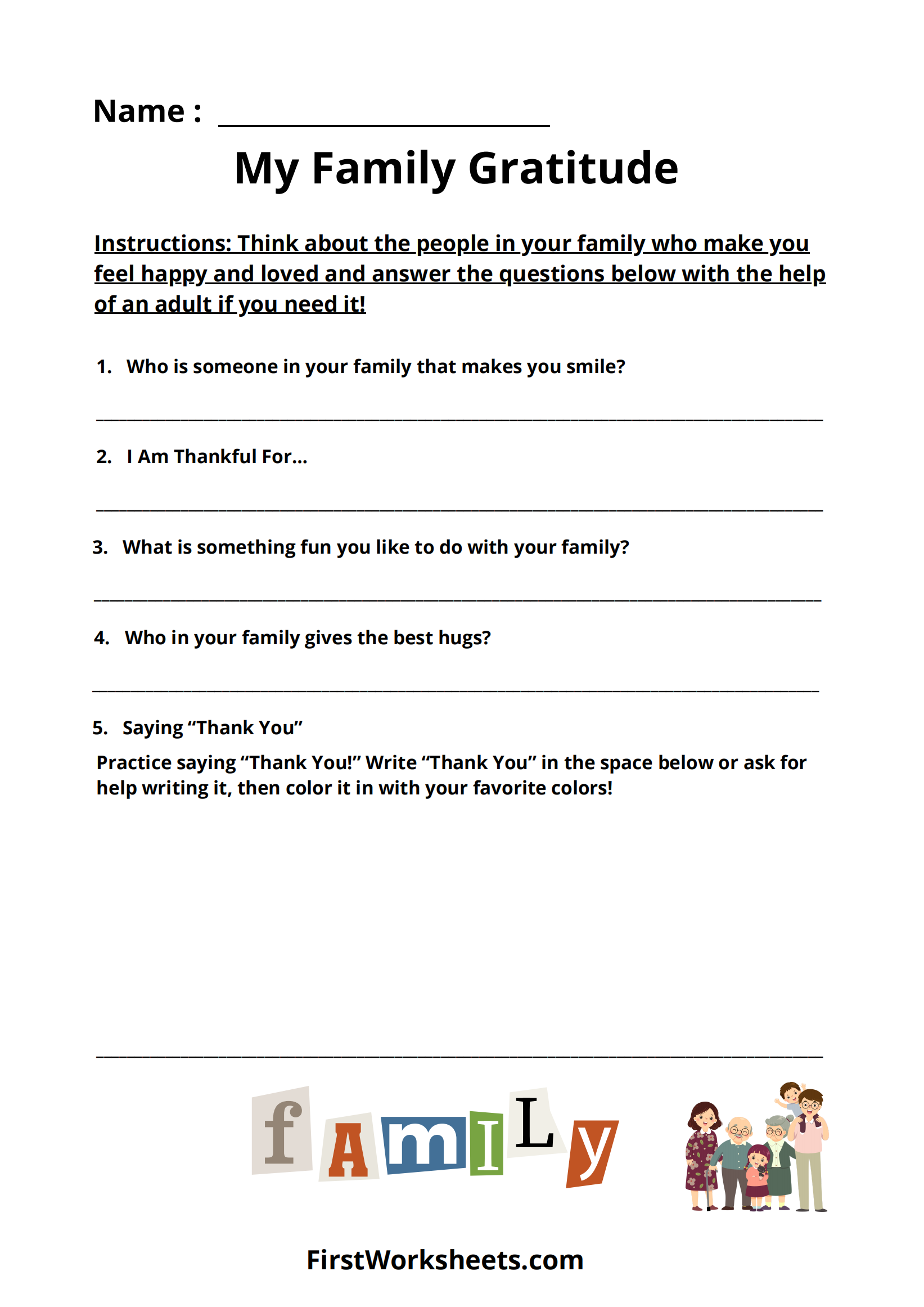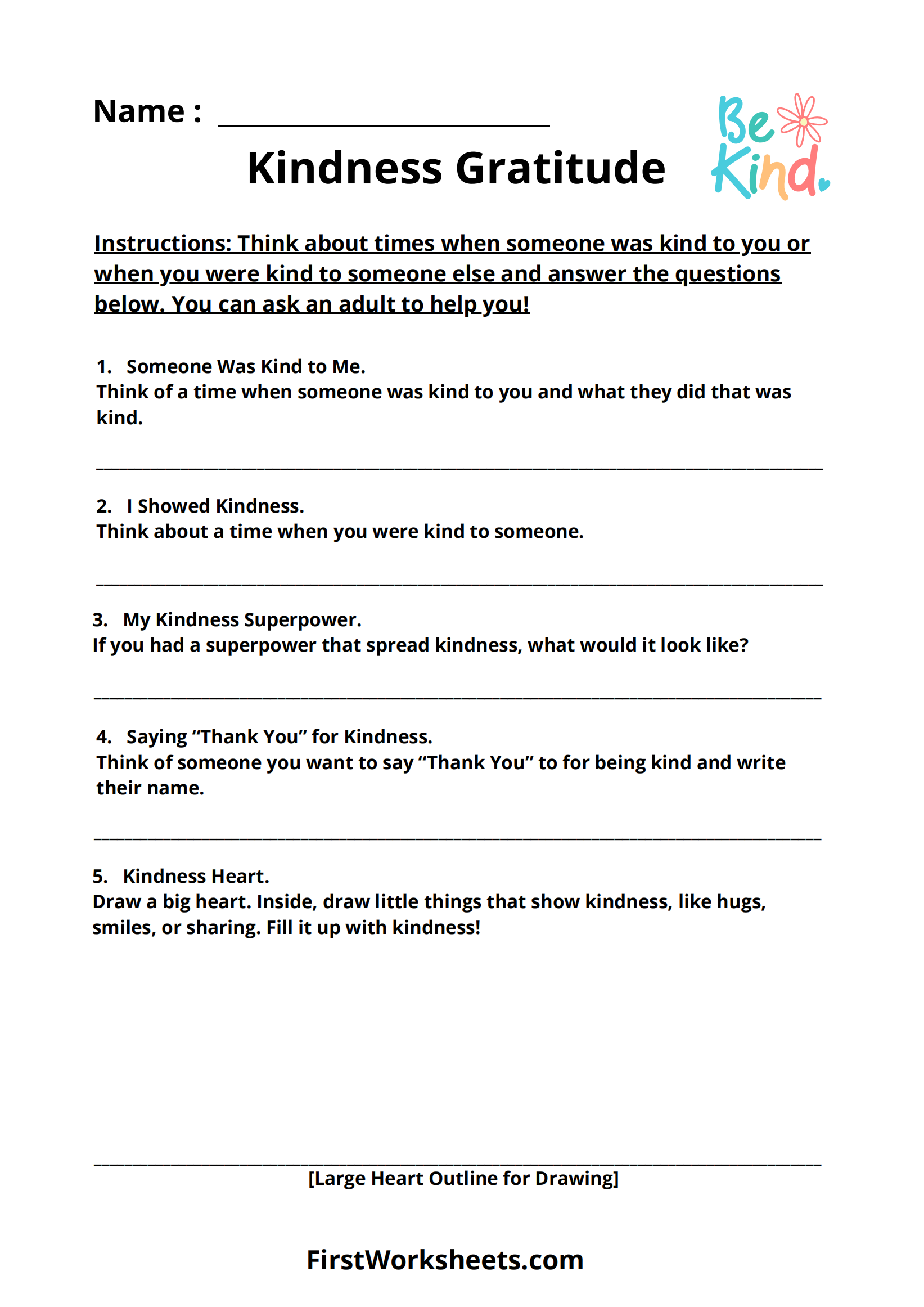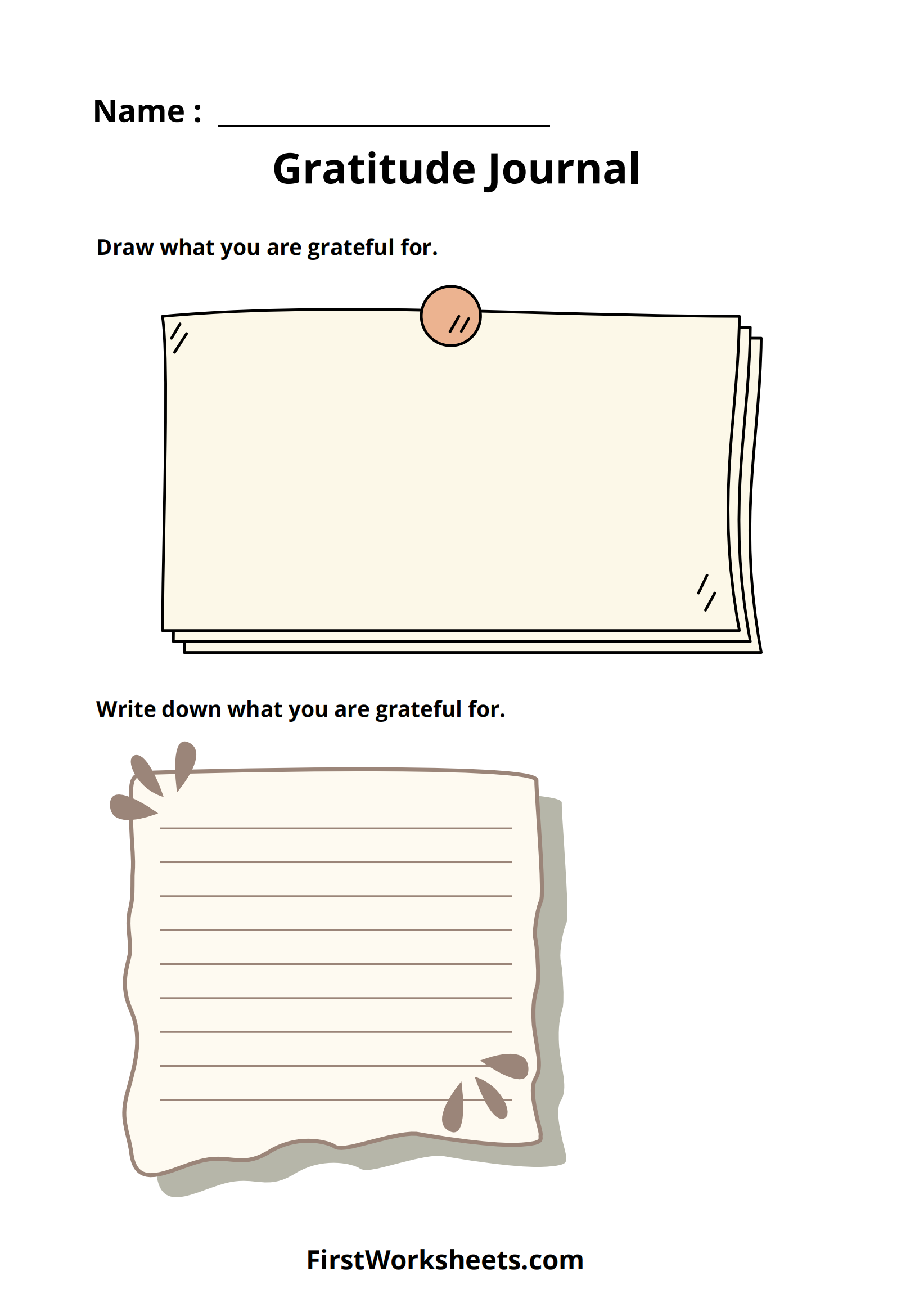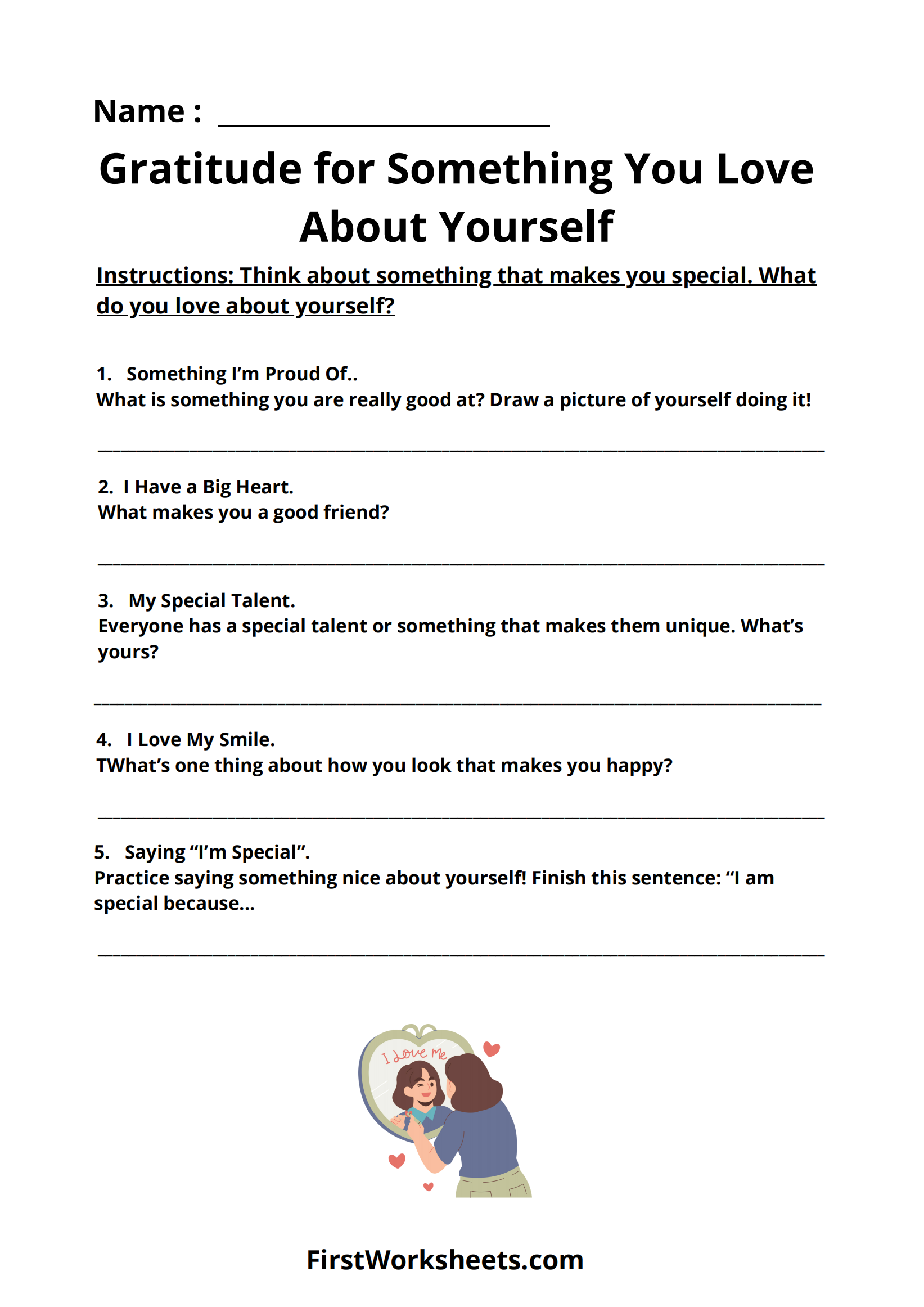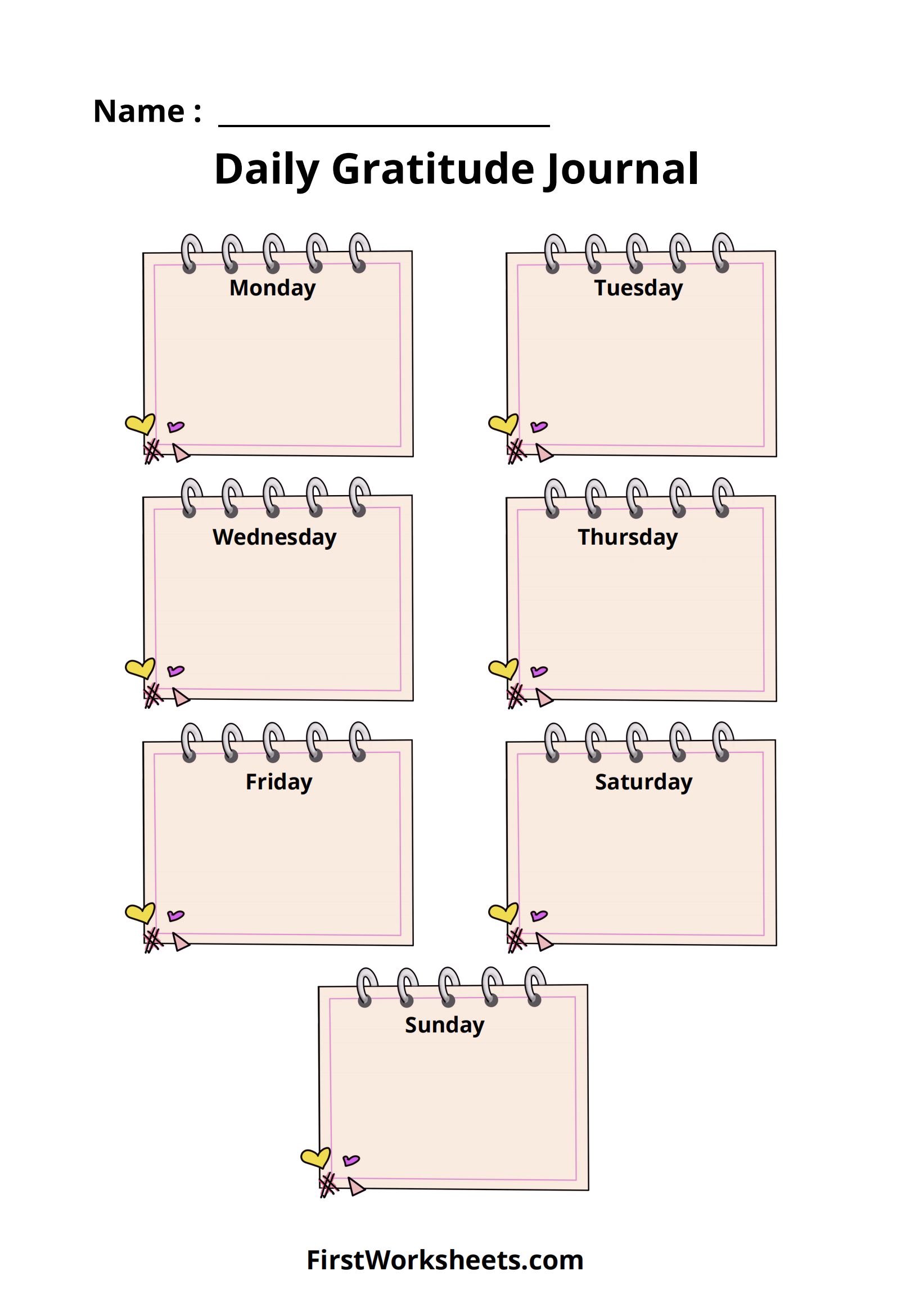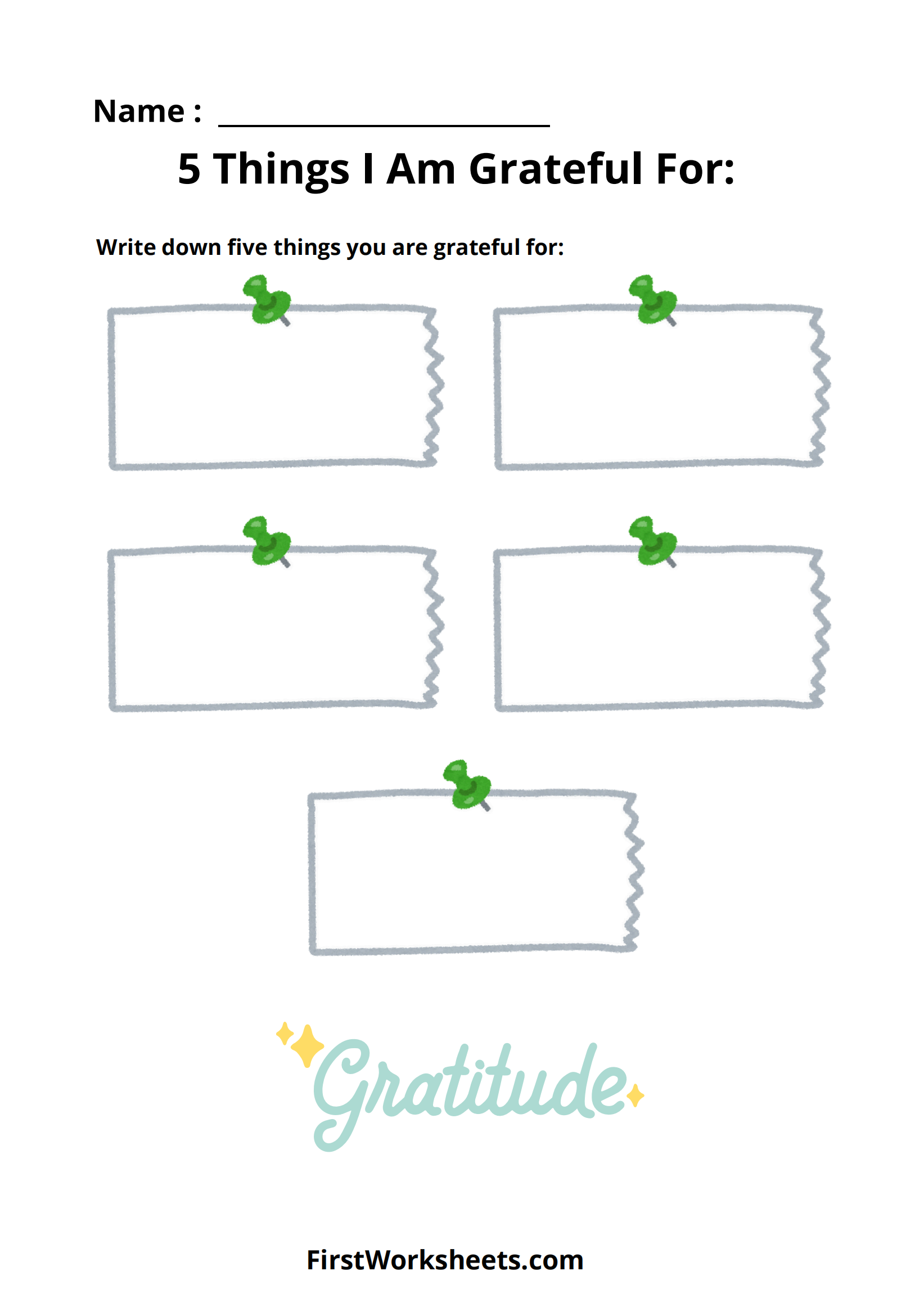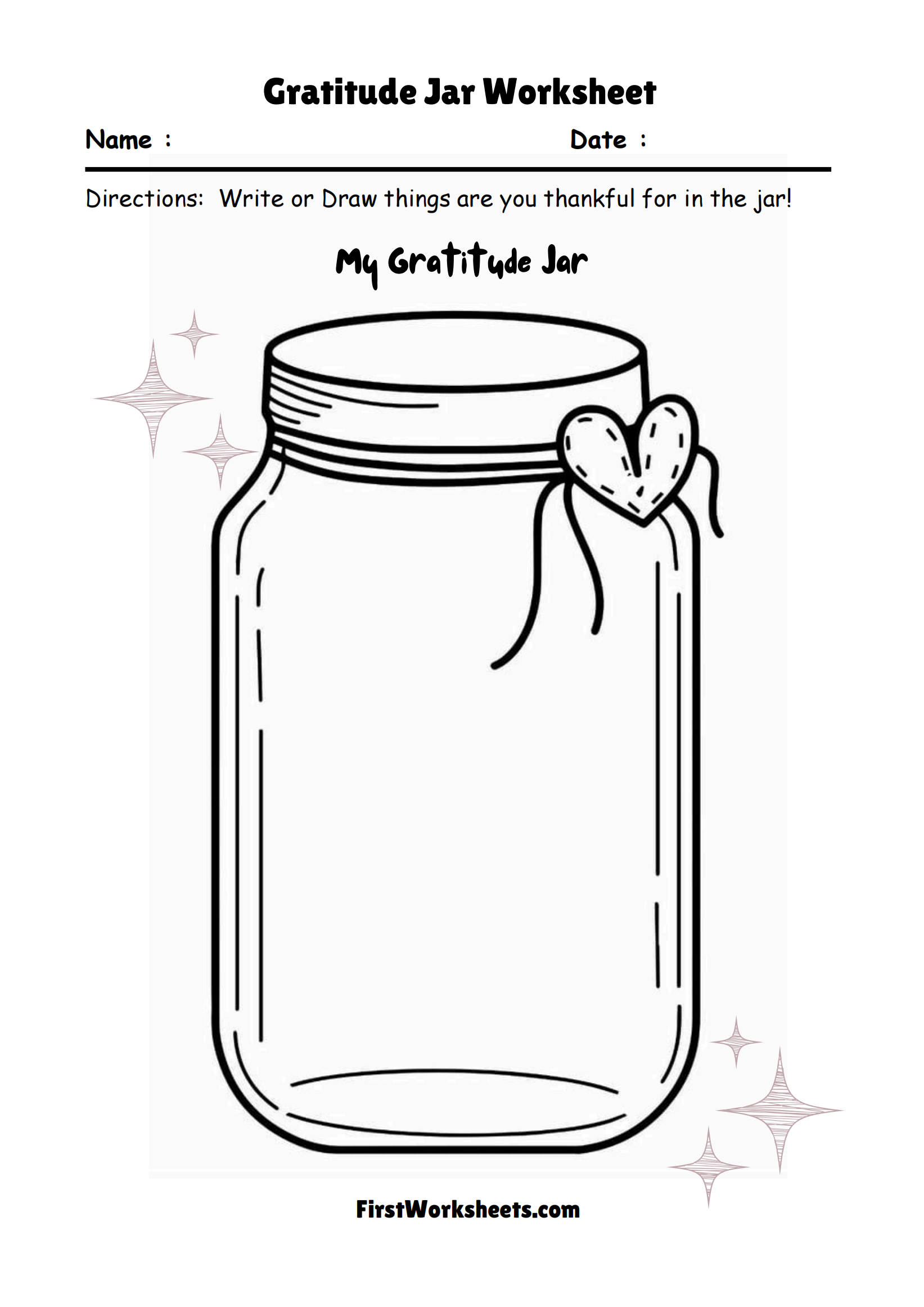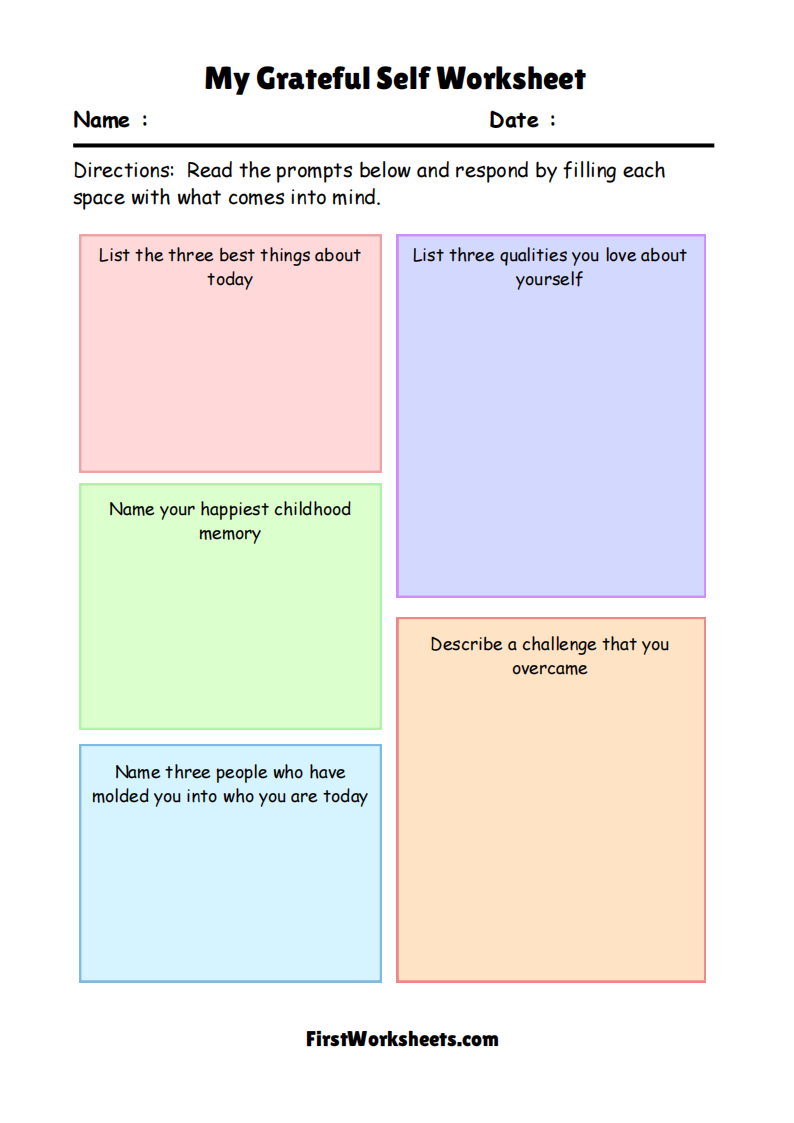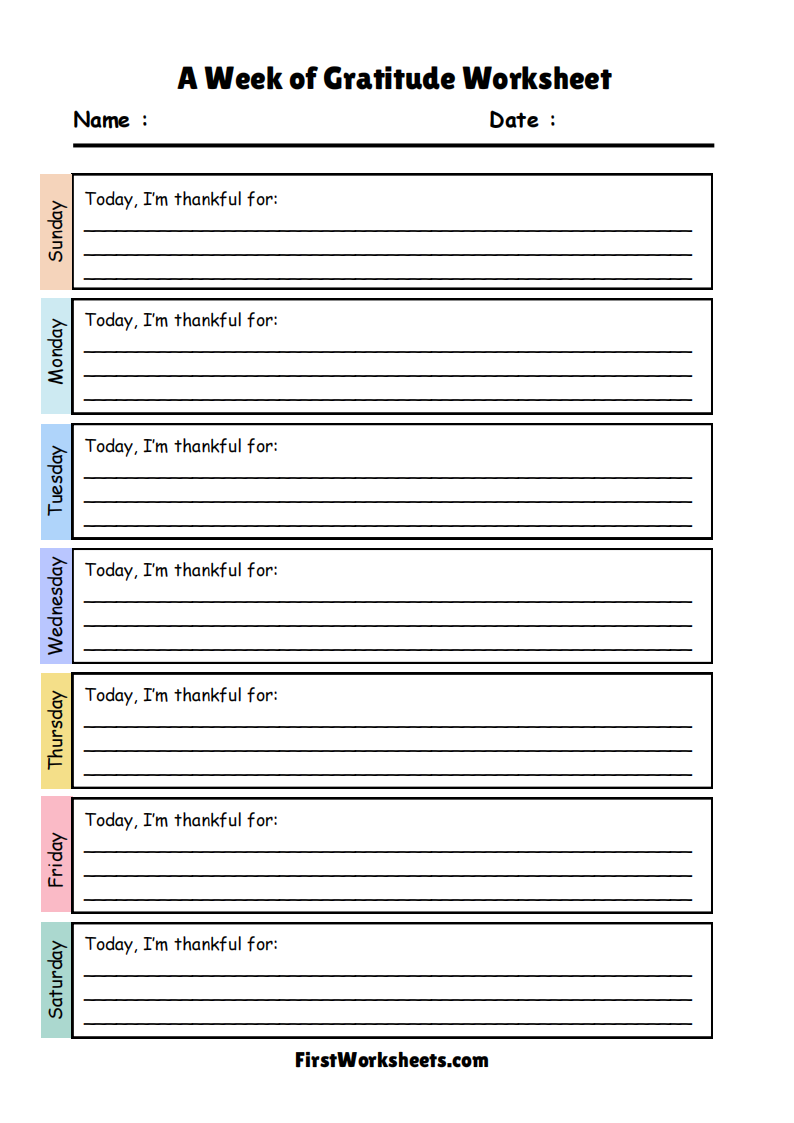Gratitude Worksheets
Gratitude worksheets for kids are educational tools designed to help children understand and practice gratitude in their daily lives. These worksheets often include a variety of activities, prompts, and exercises that encourage kids to reflect on the positive aspects of their lives, recognize the kindness of others, and express appreciation. By incorporating gratitude exercises into their routine, children can develop a more positive outlook, improve their emotional well-being, and enhance their social relationships.
Importance of Teaching Gratitude to Kids
- Emotional Well-being: Practicing gratitude has been linked to increased happiness and reduced stress. For kids, learning to appreciate what they have can lead to greater contentment and emotional resilience.
- Social Skills: Gratitude encourages empathy and kindness. When children recognize and appreciate others’ actions, it fosters stronger relationships and promotes a sense of community.
- Academic Benefits: Grateful students often exhibit increased motivation and engagement in school. A positive mindset can enhance focus and the willingness to learn.
- Physical Health: Studies have shown that gratitude can lead to better sleep and overall health, even in children.
Types of Activities in Gratitude Worksheets
- Gratitude Journals: Prompts encourage kids to write down things they are thankful for each day.
- Thank-You Letters: Activities guide children in writing letters to people they appreciate, such as family members, teachers, or friends.
- Gratitude Trees: A visual activity where kids write what they’re grateful for on leaves and attach them to a tree drawing.
- Reflection Questions: Thought-provoking questions that help children consider the positive aspects of various experiences.
- Mindfulness Exercises: Activities that combine gratitude with mindfulness, such as focusing on the senses to appreciate the environment.
- Acts of Kindness Logs: Tracking kind deeds done for others or received from others to highlight reciprocal gratitude.
Benefits of Gratitude Worksheets
- Enhances Self-Awareness: By reflecting on their feelings and experiences, kids develop a better understanding of themselves.
- Promotes Positive Thinking: Regular practice shifts focus from negatives to positives, building a habit of optimism.
- Strengthens Family Bonds: When used at home, these worksheets can open communication between parents and children about appreciation and values.
- Develops Writing and Reflection Skills: Completing worksheets improves literacy skills and the ability to express thoughts coherently.
How to Use Gratitude Worksheets Effectively
- Consistency is Key: Encourage regular use, such as daily or weekly, to build a habit.
- Create a Safe Environment: Ensure that children feel comfortable sharing their thoughts without judgment.
- Lead by Example: Adults should participate alongside children to model gratitude practices.
- Discuss Entries Together: Use the worksheets as a starting point for deeper conversations about gratitude and emotions.
- Customize Activities: Adapt worksheets to suit the child’s age, interests, and learning style to keep them engaged.
Examples of Gratitude Prompts for Kids
- “List three things that made you smile today.”
- “Who is someone you appreciate, and why?”
- “Draw a picture of your favorite place and explain why you’re grateful for it.”
- “Write about a time when someone helped you. How did it make you feel?”
- “Describe something in nature that you find beautiful.”
Incorporating Gratitude into Daily Life
- Morning or Evening Routines: Integrate gratitude reflections at the start or end of the day.
- Gratitude Jar: Write down thankful moments on slips of paper and collect them in a jar to read later.
- Family Gratitude Circles: Share aloud what each person is thankful for during meals or gatherings.
Gratitude worksheets for kids are more than just educational activities; they are tools that can significantly impact a child’s emotional and social development. By making gratitude a regular practice, children learn to recognize and appreciate the positives in their lives, fostering a foundation for lifelong happiness and well-being.
